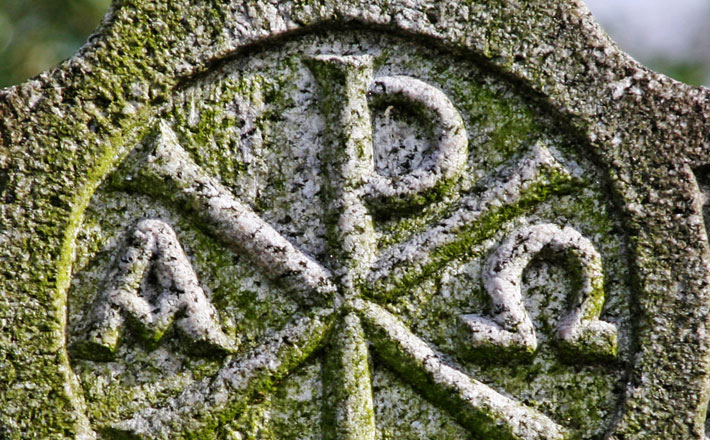Commentary on Psalm 97
The now well-known hymn “Lift Ev’ry Voice and Sing” was performed for the first time on February 12, 1900, at the segregated Stanton Elementary School in Jacksonville, FL. James Weldon Johnson, principal of Stanton and author of the poem, wrote the piece for his students as part of a celebration of Abraham Lincoln’s birthday.
Later, Johnson reflected on the genesis of the hymn:
My brother, J. Rosamond Johnson, and I decided to write a song to be sung at the exercises. I wrote the words and he wrote the music. Our New York publisher, Edward B. Marks, made mimeographed copies for us, and the song was taught to and sung by a chorus of five hundred colored school children.
Drawing on the themes and imagery of Psalm 97, Johnson wrote “Lift Ev’ry Voice and Sing” just four years after Ferguson vs. Plessy decision was handed down by the Supreme Court. It was brought to the court through a suit in which Homer Plessy was arrested for civil disobedience because he challenged Louisiana’s segregation laws. Plessy lost, by a vote of 7-1, and the Court upheld the “separate but equal” doctrine under which states could legally require separate-but-equal public facilities, such as schools.
Deeply discouraged, but also hopeful for change in the future, Johnson connected the suffering of African American people to a better future, encouraging them to keep up the good fight, to trust that “a new day” would come. In many ways, Psalm 97 and “Lift Ev’ry Voice” share this theme, forming a bridge between the ancient Israelites and African Americans at the turn of the 20th century.
Call to praise
Both Psalm 97 and “Lift Ev’ry Voice” begin with a call to praise. The psalmist invites, even commands, celebration as he begins:
The Lord is king! Let the earth rejoice;
let the many coastlands be glad! (97:1)
Johnson further expands on this imperative, emphasizing the song of the people:
Lift every voice and sing
Till earth and heaven ring,
Ring with the harmonies of Liberty;
Let our rejoicing rise
High as the listening skies … (“Lift Ev’ry Voice, vs. 1)
Cosmic in scope
Beyond a shared theme, Psalm 97 and “Lift Ev’ry Voice” are similar in scope. For example, they both move from the cosmic or universal to the particular or local. For the psalmist this is marked by “earth” and “coastlands” in vs. 1, and the mention of Zion and Judah later in the psalm. Johnson points to the very particular voices of African Americans, those who have trod the stony road and passed through the “blood of the slaughtered” along the way.
How long, O Lord?
They also emphasize the vastness of God’s time — reflecting on the connection between past and future. This is evident in that they are both attempts to answer the demands presented in Psalm 90:
Turn, O Lord! How long?
Have compassion on your servants!
Satisfy us in the morning with your steadfast love,
so that we may rejoice and be glad all our days (vs. 13-14).
Ancient Israelites were in need of protection and an assurance that they would have a future, concerns that African Americans certainly shared as they looked to their past and pondered their future.
The psalmist responds to this question of “How long?” by declaring that God has been moved to action and that the time for redemption, a better future, is on the horizon. This God is not absent, idle, or powerless — this is the God we’ve been waiting for, the one who lights up the world with lightening, consumes enemy with fire, and melts mountains like wax. This God, whose foundations are justice and righteousness, is on the move and will make things right. Johnson celebrates this God of action, the God who assures a better future, through his emphasis on faith, hope, a new day, and victory.
Sing a song full of the faith that the dark past has taught us,
Sing a song full of the hope that the present has brought us,
Facing the rising sun of our new day begun
Let us march on till victory is won.
Keep us on the path
A further resonance between the psalm and the hymn can be found in the call to righteousness and turning away from what is not of God. The psalmist frames it as a statement by pointing out that:
The Lord loves those who hate evil;
he guards the lives of his faithful;
he rescues them from the hand of the wicked.
Light dawns for the righteous,
and joy for the upright in heart (vs. 10-11).
Johnson, on the other hand, puts the admonition in the form of a prayer:
Keep us forever in the path, we pray.
Lest our feet stray from the places, our God, where we met Thee,
Lest, our hearts drunk with the wine of the world, we forget Thee;
They kept singing it
Once “Lift Ev’ry Voice” was performed, its popularity spread like wildfire. In describing what happened, Johnson noted:
Shortly afterwards [after the first performance] my brother and I moved away from Jacksonville to New York, and the song passed out of our minds. But the school children of Jacksonville kept singing it; they went off to other schools and sang it; they became teachers and taught it to other children. Within twenty years it was being sung over the South and in some other parts of the country. Today the song, popularly known as the Negro National Hymn, is quite generally used. The lines of this song repay me in an elation, almost of exquisite anguish, whenever I hear them sung by Negro children.
Perhaps this is what happened to Psalm 97. Written by an ancient Israelite for a particular festival, the psalm lived on and took on a life of its own. In addition to being chanted and sung (to a great variety of settings) in synagogues and churches throughout the centuries in worship and prayer, traces of it can be found in hymns written before “Lift Ev’ry Voice,” many of which are in our hymnals today. A few examples include: “Rejoice the Lord is King” by Charles Wesley (1744); “Holy, Holy, Holy, Lord God Almighty” by Reginald Heber (1826); and “The Almighty Reigns Exalted High” by Isaac Watts (18th century).
Living words
The beauty and power of psalms is found not just in their words and phrasing, but in their ability to grow and adapt to new circumstances over time. They are living organisms rather than static text. Not just the psalms themselves, but even their reiterations live on. “Lift Ev’ry Voice” was written as a poem, then put to music, spread and became the Negro National Anthem in 1919, gained further inspiration during the civil rights movement, has been reinterpreted by musical artists throughout the 20th century, was sung Obama’s 2009 inauguration, and I recently participated in singing it with my family at a Black Lives Matter protest.
The words of the psalm are no less powerful today than when they penned and their calls for transformation and reassurance of God’s power are no less urgent in our uncertain times.


May 8, 2016